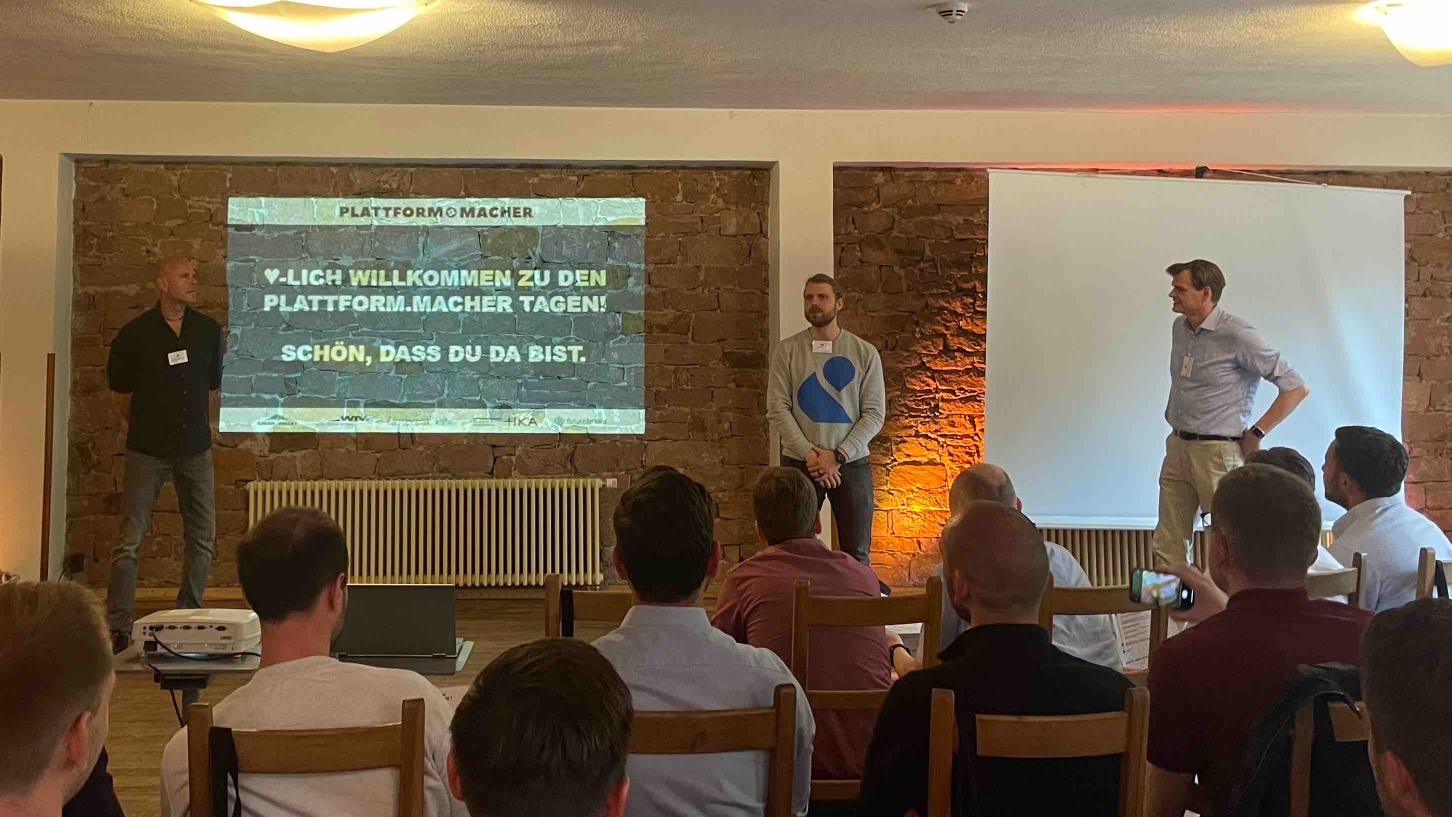Corporates understand that platforms can be a strategic way to scale and win business. But platforms also require a new set of skills and tactics to succeed, different from the traditional ones. However, there is a clear gap between education and market demand.
Today, our two guest experts Peter Evans, Managing Director of the Platform Strategy Institute, an advisory firm providing strategic advice to companies around platform strategy, and Henrik Lauridsen, Founder and Director of GERBUS Academy, a Business Academy focusing on Executive and Senior Management, will talk about platform skills and training.
The skills it takes to build platforms
Platform companies have their own specific business model, they differ from linear business models but also from e-commerce or other online forms of business. One particularly interesting thing is that many managers often think they just need one or two platform-informed people to build those.
According to Peter Evans, platforms actually require 6 key roles: a Platform Strategist, a Product Management, a Platform Ecosystem Manager (or Platform Community Manager), a Platform Data Manager, an Engineering Team and a Platform Privacy, Trust and Compliance. Then those platform professionals need to be guided by a new kind of leader, who is able to think “platformly”, which is very different from traditional linear business models and from the education received by most senior managers.
Unfortunately, it happens many times that companies don’t realise they need those skills to build a successful company, they struggle to choose between people with industry knowledge, data expertise or platform skills where they should include the three of them.
For instance, the pharmaceutical industry recognises that platforms can be an innovative and cheaper way to address drug discovery. They’ve recognized that they need more and better data, as well as to open up their ecosystems to meet talents and share expertise. To do so, they want people with deep expertise in life sciences or medicine, they want people who understand big data analytics and they want people who have the technical knowledge about platforms. Most of the time they will not find that perfect employee, so they will have to come across this strategic choice : do you find technical people and bring them in, but they may not have the life sciences or medical background, or do you institute internal training programs to bring in that knowledge that is required to really be able to execute serious platform strategy?
The educational gap
Nowadays, 60% of the top 100 platform companies by market capitalization are still run by founders. Peter Evans explains we find ourselves at an inflection point: “as the platform economy expands, the recognition that you need to talk about platform business models is now becoming more widespread.” Incumbent companies are beginning to realize that they need to adopt this strategy and to upskill their organization with new talent. And as Henrik highlights, it’s not enough for the CEO to know what platforms are, different teams and roles need to be involved in platform training to ensure the whole company moves in the right direction.
However, surprisingly enough, in the global study conducted by the Platform Strategy Institute, results show that there is not a single business school in the world that offers a major or a minor in platforms! There is a gap in the market that companies and organizations are trying to fill, while some students are just learning by themselves with online courses. “It’s going to still take some time to get the business world to recognize that there’s this thing called a platform professional, that it’s an incredibly exciting career and it’s a scarce resource” says Peter Evans.
Henrik’s Academy is trying to address this issue. Their audience is typically young people with more open-mindness to work on new business models. They are also usually better at understanding the digital complexity than senior managers.
Although a university degree is unlikely to be only about platforms, Henrik thinks that they will integrate the topic in more and more business degrees, addressing the complexity of platforms strategy development and business models.
Europe vs US
Clearly, the US have more platform unicorns than Europe. Looking at the top 100 platforms in the world, the direct employment of European platforms is only about 180,000 people compared to the US, which is 1.7 million. So, Europe is staying behind with less people who actually have direct experience in platform operation.
One thing that is emerging in the US is what you might call ‘celebrity startup CEOs’ offering platform courses, usually around one particular topic like community building or network effects. Although the US and the European markets are different, with inspiring ideas on both sides, Europe needs to get its platform engine moving faster, with more European role models. This includes political models and leadership. The European Commission is actually revising their view on platform business models and releasing a few studies, which is quite positive but needs to be accelerated.
In short, although more and more managers understand the potential of platform business models, there is still a misunderstanding about what it takes to build a successful platform in terms of skills and business strategy. As Henrik says very well, “If you don’t have a platform strategy, you don’t have a strategy at all.”
We need to address urgently the platform professionals shortage, and there is a real opportunity for the educational corpus to develop platform courses and fill the market demand for it.
Thank you Henrik and Peter for the great conversation and insights.
The complete episode can be listed at your favorite podcast provider.
If you want to apply ecosystem thinking to your platform journey please have a look at our “Ecosystem Journey Canvas” as a starting point. It helps your to understand the ecosystem, upcoming user needs and to develop an ecosystem strategy for your business.



